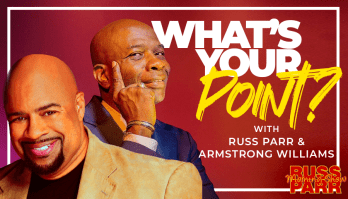By Fredrick Robinson, former editor of The Atlanta Tribune – (via: cnn.com)
Not long ago, presidential candidate Herman Cain made headlines when he said blacks were brainwashed for not considering conservative ideas. On other occasions he declared that racism was no longer a problem and blamed the poor for being poor.
A personal friend, I know Cain to be more thoughtful than those incendiary sound bites, but I also suspect he knew that uttering them would help him land right where he is: atop the Republican presidential field, a standing that could be threatened by recent reports of sexual harassment allegations. Unfortunately, such trash talk — popular among many black conservatives — continues to alienate black Republicans from the African-American community.
During the early ’90s, when I was a member of The Atlanta Journal editorial board, I had high hopes that the black conservative movement — to which I was a recent convert — could help transform black America. I penned a number of columns urging the black community to put its vote in play so that Democrats would have to do something new to keep it and Republicans would be enticed to go after it.
For me, the ’90s was an exciting time for black conservatives. Having burst on the scene in the early ’80s during the Reagan administration, they were everywhere. On the far right were free-market conservatives like economists Thomas Sowell and Walter Williams, along with establishment types such as Ward Connerly and Clarence Thomas. On the moderate side were professors like Glenn C. Loury, Shelby Steele and Stephen Carter.
On the progressive side were voices like community grass-roots intellectual Robert Woodson and television host Tony Brown. Beyond those names, there were a number of other right-leaning black voices, from college campuses to the pulpit. Black conservatism was the most visible it had ever been since Booker T. Washington peddled self-help capitalism at the turn of the last century.
But what excited me most was progressive black conservatism. Rooted in black nationalism and the self-help belief system of Malcolm X, it insisted that the black community be at the forefront of solving black problems.
Far from being separatist or pessimistic, it was highly hopeful about America, recognizing that there was much more opportunity than there were obstacles. It was policy- and solutions-oriented, focusing on things like rebuilding the black family, black entrepreneurship, starting and supporting black businesses in poor neighborhoods, enterprise zones, housing vouchers, micro-lending, repealing Davis Bacon (a prevailing wage law that unfairly prevented unskilled, often black, workers from gaining apprenticeships on federally funded construction jobs), and starting Christian schools.
It wasn’t wholesale against social programs; it just wanted to duplicate the successes of those programs — not necessarily government-led — that actually worked. It didn’t deny the existence of racism, but neither did it obsess over it, counting as more important those things over which blacks had control: persistence, hard work, academic exertion, and personal responsibility.
But progressive black conservatism would never gain traction. Its lone supporter among white Republicans — HUD Secretary Jack Kemp under George H. W. Bush — who pushed a strong urban agenda, was ignored as his party pursued an aggressive suburban strategy that further alienated blacks. The tone of black conservatism became even more accommodationist, with progressive voices being drowned out, and never evolved beyond parroting long-held white conservative and neoconservative dogma.
Read more at cnn.com
Related Stories:
Cain Accuser Was Paid $35K In Severance Pay After Claim
Cain Supporters Stick By Him Amid Sex Scandal
Recent Stories:















